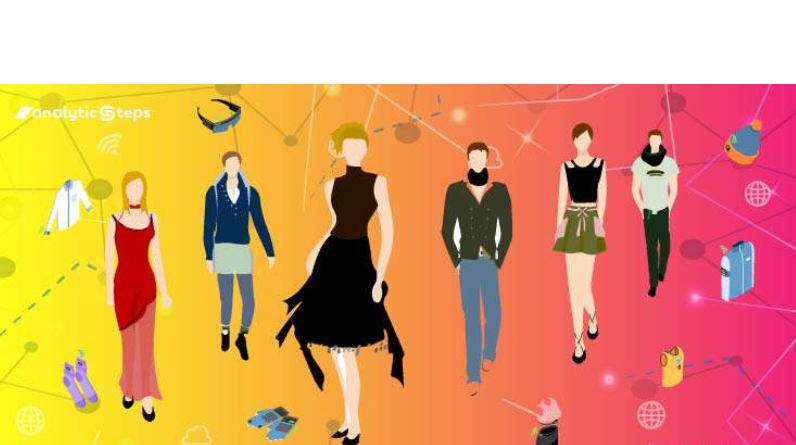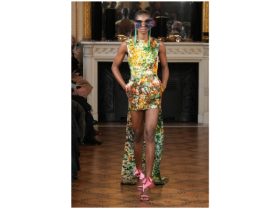The fashion and design industries are not immune to the many changes brought about by the advent of the internet.
New business models, consumer habits, and customer engagement have all emerged as a result of the internet’s impact on the fashion industry and its houses and designers.
This article will examine the ways in which the internet has democratised fashion and design, from its effect on the fashion industry to the growth of online shopping.
Internet’s influence on clothing and accessory markets
The internet has revolutionised the fashion industry by allowing designers and fashion houses to advertise their wares to customers all over the world. Because of this, there are now more fashion labels than ever before, as well as more people shopping for them. Social media, online advertising, and electronic commerce are just some of the ways that the internet has expanded the ways in which fashion brands interact with their target audiences. The proliferation of fashion-focused websites is a prime example of how the internet has altered the apparel business.
Customers can now shop for clothing and accessories 24/7 from any location thanks to online fashion retailers.
As a result, there is now more consumer demand and competition amongst fashion retailers. The growth of social media is yet another way that the internet has affected the fashion industry. Thanks to the rise of social media sites like Instagram, Twitter, and Facebook, clothing companies can now have direct conversations with their customers. As a result, fashion companies now have more fans and consumers than ever before.
Fashion companies can now have one-on-one conversations with their customers thanks to the advent of social media.
A rise in online shopping

E-commerce, made possible by the expansion of the internet, has revolutionised the fashion industry and the way in which consumers shop for apparel and accessories. Because of the rise of online shopping, people from all over the world can now get their hands on the latest fashions and accessories whenever they want. As a result, there is now more consumer demand and competition amongst fashion retailers. Because of the proliferation of e-commerce platforms like Amazon, eBay, and Etsy, shoppers now have access to a plethora of vendors selling everything from clothing to jewellery. Because of this, there are now more merchants and buyers than ever before.
Stitch Fix and Trunk Club are just two examples of the many online personal styling and clothing subscription services that have flourished as a direct result of the proliferation of e-commerce. Services like these use consumer data and algorithms to provide sartorial recommendations, making it simpler for customers to find garments that complement their individual taste and lifestyle.
Also Read :THESE 10 APPS USE UP YOUR SMARTPHONE’S BATTERY FAST
Fashion’s increasing accessibility
Because of the internet, anyone can now participate in the fashion industry as a designer or style icon. Because of this, there are now more people shopping for clothes online and more independent fashion designers and influencers than ever before.
Anyone can now study fashion design and styling thanks to the proliferation of online fashion schools and courses, such as those offered by the Fashion Institute of Technology and the Savannah College of Art and Design. A result of this trend is a rise in the number of people interested in fashion as a whole, including both independent designers and influential figures in the industry.
An uptick in the number of lone fashion designers and bloggers can be attributed to the rise of crowdfunding sites.
The rise of crowdfunding platforms like Kickstarter and Indiegogo has also contributed to the democratisation of fashion thanks to the internet. Because of this, there are now more people shopping for clothes online and more independent fashion designers and influencers than ever before.
Collaborations- One more way the internet has changed the fashion industry is by encouraging the growth of collaborations between brands, particularly in the sneaker market. Probably the most well-known instance of this is the Nike Dunk. Even though Nike’s Dunk sneaker has been around for decades, a new generation of consumers was introduced to them thanks to the internet. The resurgence in the Dunk’s popularity can be traced back to online communities where sneaker fans can talk shop and swap stories about their favourite sneakers.
As a result, Nike started dropping limited-edition colorways and collaborating with the likes of Supreme and Off-White. The proliferation of the Dunk on the internet has made it possible for anyone, anywhere to buy a pair. Fans of limited-edition sneakers like the Nike Dunk can now buy and sell these collectibles on websites like eBay and StockX thanks to the widespread availability of information online.
Innovative approaches to the fashion industry and consumer culture
The fashion and design industries are not immune to the many changes brought about by the advent of the internet. The internet has ushered in not only new business models, but also novel approaches to both the production and consumption of fashion, as well as novel methods of interacting with consumers.
The internet has revolutionised the fashion industry by allowing designers and fashion houses to reach an international audience, consumers to shop for clothing and accessories from any location at any time, and anyone to become a designer or fashion influencer, all while spreading and discovering new trends and styles. It will be fascinating to observe how the future of the fashion industry responds to the ongoing influence of the internet.



Leave a Reply